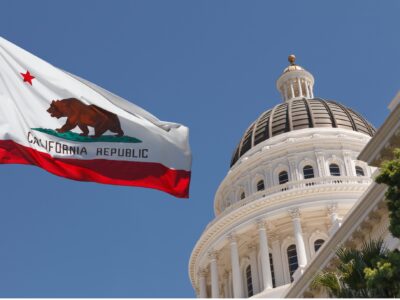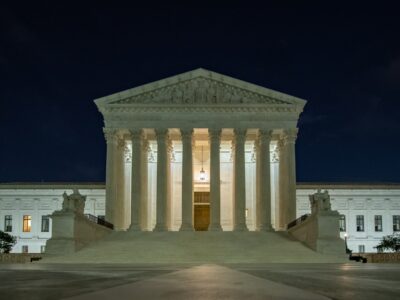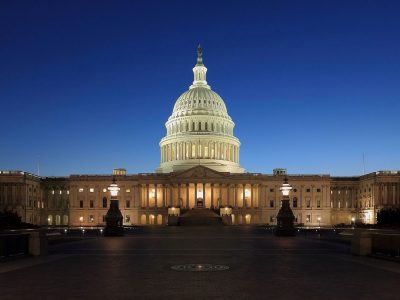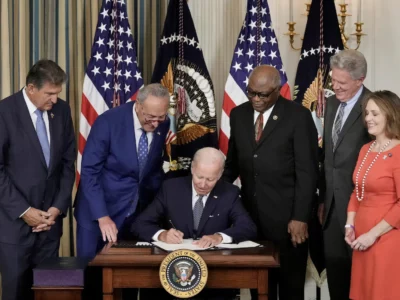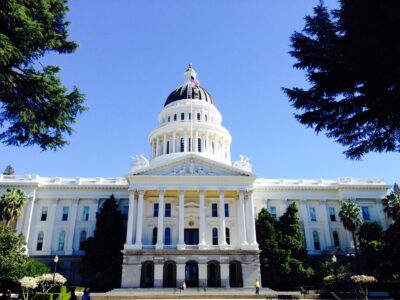Regulation
California can help meet its climate goals by removing SERP’s sunset date
By Molly Bruce, Dave Smith, Michael Kiparsky, Derek Hitchcock, Peter Van De Burgt, Sydney Chamberlin, Megan Cleveland
Many regulatory clearances like permits aim to guard against projects that pose harm to the environment. However, permitting can also undercut environmental restoration efforts. While restoration is designed to remedy environmental harms and improve resilience to climate change, permitting can substantially increase project costs and slow or altogether impede environmentally beneficial projects. Striking an effective …
Continue reading “California can help meet its climate goals by removing SERP’s sunset date”
CONTINUE READINGLosing Chevron: What Does It Mean for California?
The Supreme Court’s decision in Loper Bright will not necessarily impact how California courts review our state agency determinations. But we’ll feel it in other ways.
A question I’ve been getting a lot since the Supreme Court overturned the Chevron doctrine is: “What does this decision mean for California?” Here are three takeaways about how the Golden State is likely—or not—to be impacted at first blush. First, the decision does have the potential to impact California directly in some pending litigation. …
Continue reading “Losing Chevron: What Does It Mean for California?”
CONTINUE READINGIs Loper v. Raimondo Really the Power Grab Commentators Assume?
The Supreme Court has already grabbed power from agencies through the major questions doctrine.
Headlines about today’s decision in Loper v Raimondo overturning the 40 year-old decision in Chevron v NRDC that granted agencies deference in their interpretation of ambiguous statutes focus on the “massive power grab,” the decision’s “sweeping” nature and call it a “blow” to the administrative state. My view may be idiosyncratic but I don’t view …
Continue reading “Is Loper v. Raimondo Really the Power Grab Commentators Assume?”
CONTINUE READINGThe Ten Most Important U.S. Environmental Laws
Some of the choices may surprise you.
What are America’s most important environmental laws? Some are familiar, such as the federal air and water pollution laws, and the Endangered Species Act. But there are other people rarely hear about — even in environmental law courses — but have done a lot to protect the environment.
CONTINUE READINGThe “Silver Bullet” Required to Improve California’s Water Rights System: More & Better Data
California Lags Behind Other Western States in Obtaining Critically-Needed & Available Water Diversion Data
Recently I’ve posted stories about efforts to enforce California’s water laws in the face of efforts by some diverters to evade and ignore limits on their ability to privatize public water resources–especially in times of critical drought. One post focused on the federal government’s successful criminal prosecution of a San Joaquin Valley water district manager …
CONTINUE READINGReforming California’s Financial Penalties for Water Theft Will Create an Effective Deterrent
Overdue State Water Reform Legislation Likely Be Enacted in 2024–Finally
In a Legal Planet Post earlier this week, I recounted the saga of how federal prosecutors recently secured the criminal conviction of Dennis Falaschi, the former San Joaquin Valley water district general manager who oversaw the decades-long theft of millions of gallons of publicly-owned water from California’s Central Valley Project. That successful prosecution certainly qualifies …
CONTINUE READINGWhy a Bird in the Hand is Worth Two in the Bush — Especially When the Issue is Climate Change
Climate action is too urgent to insist on waiting for perfect solutions
It’s an ancient dispute: Should we compromise on half-measures, or hold out until we can get something a lot better? Idealists argue for holding out. Pragmatist argue that half a loaf is better than none. Rather than rehearse familiar arguments, I want to focus specifically on climate change. In my view, holding out for ideal …
CONTINUE READINGLittle Hoover Commission Releases Flawed CEQA Report
The long-awaited report proposes sweeping exemptions and process changes—even though its own reasoning points in the opposite direction.
More than a year ago, California’s Little Hoover Commission convened the first in a series of public hearings designed to interrogate the California Environmental Quality Act (CEQA) as well as Californians’ often tense relationship with that landmark legislation. In recent years, some pro-housing advocates have pointed to CEQA as the bogeyman driving the state’s affordable …
Continue reading “Little Hoover Commission Releases Flawed CEQA Report”
CONTINUE READINGJudicial Deference to Agencies: A Timeline
Decisions about judicial deference to agencies on legal issues didn’t begin or end with Chevron.
The Supreme Court is about to make a major decision about the balance of power between courts and agencies like EPA. Here’s what you need to know about the history if the issue to understand what’s going today.
CONTINUE READINGEPA’s New Power Plant Rules Have Dropped. What Happens Next?
Media battles. Lawsuits. Stay requests. And political mayhem.
The release of Biden’s new climate regulations for power plants will unleash a maelstrom of legal and political battles. One key question: Will the Supreme Court short circuit the litigation process by staying the rules.
CONTINUE READING



